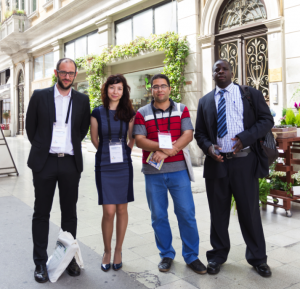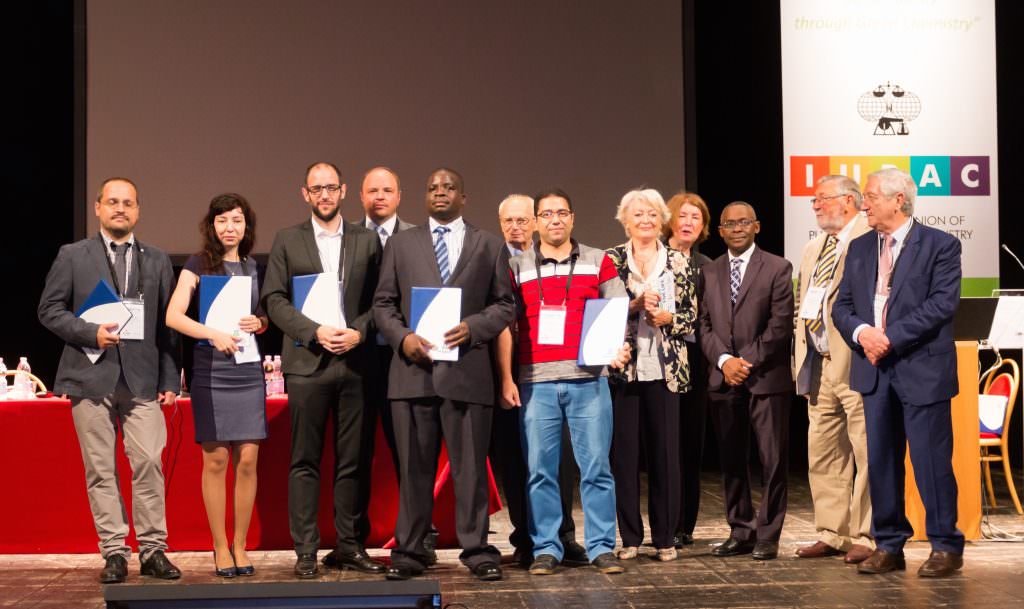
This year, the international scientific jury selected the six best projects from among submissions from around the world for the PhosAgro/UNESCO/IUPAC grant. The winners included Ahmed Shebl Elsayed Sayed (Egypt), Muhammad Ismail (Pakistan), Enrico Ravera (Italy), Alsu Akhmetshina (Russia), Wycliffe Chisutia Wanyonyi (Kenya) and Ignacio Carrera (Uruguay), who will all receive grants for further research. The winners may use their prize money for research on topic that include ways to minimise the impact of pesticides on plants, fruits and vegetables and to ensure the safety of farmers and workers; to patent new wastewater treatment technologies; to discover technologies for greener drug synthesis; or for the introduction of more environmentally friendly means of synthesising nano-fertilisers. A very interesting idea was proposed by the above-mentioned scientist from Kenya, Wycliffe Chisutia Wanyonyi, which is to use chicken feathers for the production of cosmetics, such as hair-care products, and even the production of fertilisers.
The award ceremony was attended by IUPAC President and Associate Member of the Russian Academy of Sciences Natalia Tarasova; the President of the Italian National Commission for UNESCO, Franco Bernabè; PhosAgro CEO and member of Russia’s National Commission for UNESCO Andrey Guryev; member of the Executive Committee of the International Council for Science (ICSU) and the former President of IUPAC, Nicole Moreau; the chair of the international academic jury for the grants project, Professor John Corish from the University of Dublin; as well as leading representatives of the global scientific and educational communities.

The five-year, global project called Green Chemistry for Life, with USD 1.4 million in funding, was launched on 29 March 2013 at UNESCO’s Paris headquarters. The initiative is aimed at providing support for talented young scientists from around the world that are conducting research in the field of green chemistry. Their goal is to protect the environment and human health through the development of energy-efficient and environmentally friendly technologies.
Call for applications — Next deadline: 28 February 2017
See how to apply
This programme is unique in that for the first time in UNESCO’s long history, and in the entire UN system, this kind of initiative is being implemented with extra-budgetary funds provided by Russian business. PhosAgro, with assistance from Russia’s Foreign Ministry and the Russian National Commission for UNESCO, that offered to provide financial support for scientific research for young scientists from all around the world. The programme has proven to be a useful and effective way to support and promote promising projects developed by young scientists, as well as to attract attention of the public to the key role that chemistry plays in solving issues facing global civilisation.
In her address to conference participants, IUPAC President Natalia Tarasova said: “science today plays a leading role in addressing the challenges facing humanity, which is why it is especially important to support talented young people. We also believe in scientific diplomacy, in the notion that science knows no boundaries, since scientists from all around the world speak the same language. That is why it is important to develop support for young scientists at the international level.”
Russian National Commission for UNESCO Member and PhosAgro CEO Andrey Guryev said: “the further progress of humankind while minimising our impact on the environment at the global level is possible only through the joint efforts of science, international organisations and business. I hope that, in the future, this project will serve as an example of successful cooperation between science and industry in the formation of a new ethics of progress that envisages a great degree of responsibility for the prosperity of future generations on our planet.”
… read full release @ phosagro.com
How to Apply to the Next Call?
See info on the UNESCO website at: https://www.unesco.org/new/en/natural-sciences/science-technology/basic-sciences/chemistry/green-chemistry-for-life/how-to-apply/
